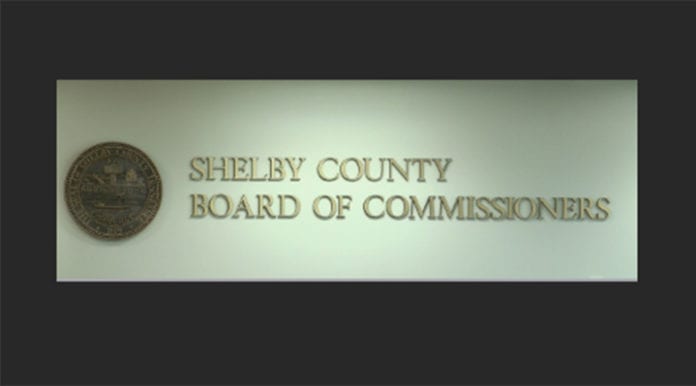Dissatisfied with the current setup, Shelby County Commissioners Monday (Oct. 16) took another cautious step towards creating a real estate division to oversee the sale of tax-delinquent properties.
The move to replace the current Shelby County Land Bank passed 6-4 in its second reading, with four members abstaining.
However, to place a cornerstone on a change, a majority of seven commissioners will have to approve the resolution in its third and final reading.
The Land Bank was founded in 2007. It receives properties obtained by Shelby County after a tax sale has been conducted and after the subsequent redemption period has expired. It is currently a part of the county Division of Public Works.
What happens to these properties is crucial to neighborhoods fighting blight.
The key goal has been to sale the property to people or entities who/that can redevelop the property and get it back on property tax rolls.
The bank has faced criticism, especially for property being sold for less than the taxes owed, according to critics.
“We are fundamentally not opposed to what you’re suggesting to do in your ordinance, but I just wanted to make it clear it will not come without an economic impact or a budget,” cautioned Cliff Norville, Shelby County Director of Public Works.
According to a rough estimate, creating the division will run upwards of $300,000. Half of the costs will go to manpower. A “back-of-the-napkin calculation” suggests three employees to perform the job. They would make around $50,000 annually.
However, for one commissioner, the promise of a larger annual budget doomed the proposed institution.
“I see no reason that if it can function in a transparent manner — which I believe it is — that we should negatively impact our budget,” Commissioner Brandon Morrison said.
Morrison added, “Because of the budgetary impact that had been shared with us, I think this real estate…department’ is an important function of county government.”
The push to replace the Land Bank is an effort to boost sales of parcels, particularly to district residents. In addition to increasing individual wealth, the proposal also will tackle blight through home ownership.
An estimated 1,350 properties were sold in 2018 and 2019 through the county trustee, for a haul of $3.5 million. However, the numbers dropped when the COVID pandemic spread the following year.
The revenue comes from a combination of application processing fees and proceeds beyond taxes owed.
“Three out of the last five years, there’s been a negative net operation in the Land Bank,” said Norville.

The ordinance’s sponsor Commissioner Britney Thornton has led the charge to revamp the Land Bank operation. She pointed out that historically marginalized neighbors, like Orange Mound in her district, are among the areas negatively affected by the current setup.
“I’m a little disheartened to have to make a case that clearly there is an equity case to be made. Over half of my colleagues’ districts don’t share the burden of some of our top four districts share in having to carry the weight in the blighted properties and the amount of transactions that transpire within our districts,” said Thornton.
Thornton continued, “If the burden is not yours to carry, then I would hope that you would at least be empathetic to the need of some of our colleagues to have to step up to do something. What we know is, we are having to deal with different circumstances.”
Other topics discussed was the use of claw backs that can be used to reacquire a property, typically if it isn’t being used in an agreed upon manner.
“We do put a reversionary clause in every one of our agreements…You have about five years to do with the property what you said you were going to do with it. The county has the ability to exercise this reversionary clause if you do not,” said Norville.
The clause is little more than a threat. With a shorthanded staff, follow up is scarce.
“They are not remembering a time where we actually exercised the reversionary clause in the last five years,” said Norville.
Another method of distributing property is through conveyance.
This is usually achieved by transfer of a deed from one entity to another. With less than a dozen in a typical year, most of the beneficiaries are nonprofits.
“We really haven’t conveyed a lot of property, with the exception of 2020, and that was a very large conveyance to the Klondike/Smoky City CDC,” said Norville.
Municipalities, like Memphis and Millington, occasionally receive parcels upon request too.
Voting in favor of the resolution were commissioners Charlie Caswell, Erika Sugarmon, Edmund Ford Jr., Michael Whaley, Mickell Lowery, and chair Miska Clay-Bibbs.
Commissioners Amber Mills, Mick Wright, Morrison, and Thornton abstained.
Commissioners Shante Avant, Henri Brooks and David Bradford did not vote.



